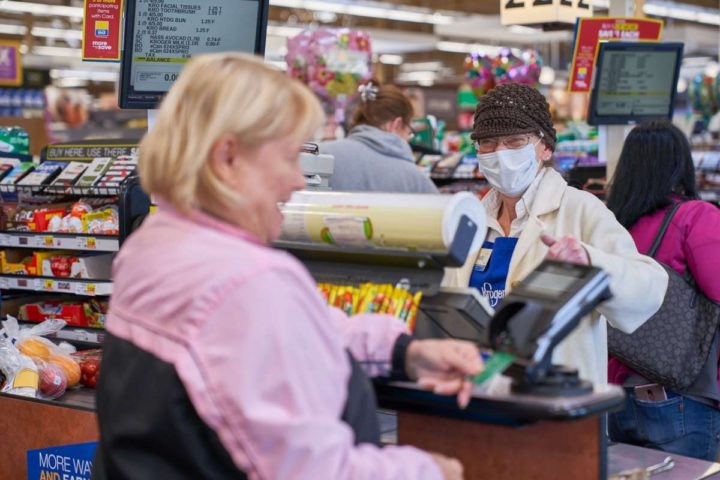
Two years ago, a market research firm’s annual report on the grocery industry called having to search for coupons and deals a “headache.” Last year, the company called it “a headache and an insult.” This year? Retailers offering “accessible, easy-to-use discounts and rewards earned repeat visits from grateful customers.”
Well, seems like those coupons and deals aren’t quite so insulting anymore, are they?
The retail analytics company dunnhumby is out with its fourth annual Retailer Preference Index. Each year, it surveys thousands of shoppers about their experiences at dozens of grocery stores, and combines their findings with data about the retailers’ financial performance, for a comprehensive look at what works.
This year, Amazon beat out last year’s overall winner H-E-B and previous winner Trader Joe’s. But dig a little deeper into the data, and couponers and deal-seekers have a different measure of which stores offer the best grocery shopping experiences.
When asked to rank grocery stores by the quality of the discounts and rewards they offer, five Kroger-owned chains made it into the top ten. Fry’s is tops, followed by Kroger itself, with King Soopers, Smith’s and Fred Meyer further down the list. Also making the top ten are the non-Kroger chains Price Chopper, Winn-Dixie, Meijer, Giant and Food City.
Typically, dunnhumby’s reports turn up their nose at retailers that offer, and shoppers who prefer, plenty of discounts and rewards as opposed to just lower everyday prices. “The more a retailer leans on discounts, rewards and information instead of improving base price, the poorer positioned they tend to be for financial success,” this year’s report warned, while last year’s report included the memorable line “When promotions, information or rewards require shoppers to do too much work, aren’t timely or don’t seem tailored to them, it is both a headache and an insult.”
This past year, however, shoppers who got good deals at the grocery store were far from insulted. And the only headaches they suffered were when other shoppers got the deal before they could.
Of all the attributes shoppers were asked to rate, such as price, quality, convenience and speed of checkout, discounts and rewards were more important to grocery shoppers in 2020. That was due largely to disruptions caused by the onset of the coronavirus pandemic and the economic challenges associated with it.
“The last time a significant recession occurred – the Great Recession of the late 2000s – a new era of permanent, value-seeking behaviors was launched,” this year’s report reads. “Shoppers bought more sale items and got used to buying at lower prices.” This past year, dunnhumby found, we began to see more of that, as cash-strapped shoppers looked for discounts deeper than mere everyday low prices, and sought out stores that offered them. As a result, when it came to retailers’ financial performance, discounts and rewards “became much more associated with success in 2020 than in previous years.”
Ironically, part of the reason coupons and deals became more popular, is because there were fewer of them – just when shoppers needed them the most. “Customers are not only noticing a rise in the cost of food but also that deals and discounts are less frequent than they were before Covid, creating a sort of double whammy for price conscious customers,” dunnhumby noted. And when deals are available, “customers swarm the items and leave empty shelves,” leading many shoppers to miss out.
“Empty shelves were a big problem no matter what store you went to,” one survey respondent told dunnhumby. And “the number of sale items has been reduced, and the sales are nowhere as good as they were pre-COVID.”
Three of the five grocery stores that earned top marks in dunnhumby’s overall survey – Amazon, Trader Joe’s and ALDI – don’t accept most coupons and have few traditional weekly sales. That might suggest that more shoppers simply prefer everyday low prices. But the longer and more severe the economic impact of the coronavirus, the more that could change.
With fewer of us eating out, and more of us preparing more meals at home, grocery stores did pretty well financially this past year. But “while all grocery stores may have felt like winners,” dunnhumby observed, “the fact is that some grocery stores won more than others.”
So the traditional measures of the most popular and profitable grocery strategies seem to have changed. Amazon may be on top for now. But as long as its competitors don’t mind “insulting” their customers with “headache-inducing” coupons and deals, we may well see a whole new slate of winners this time next year.
Image source: Kroger













